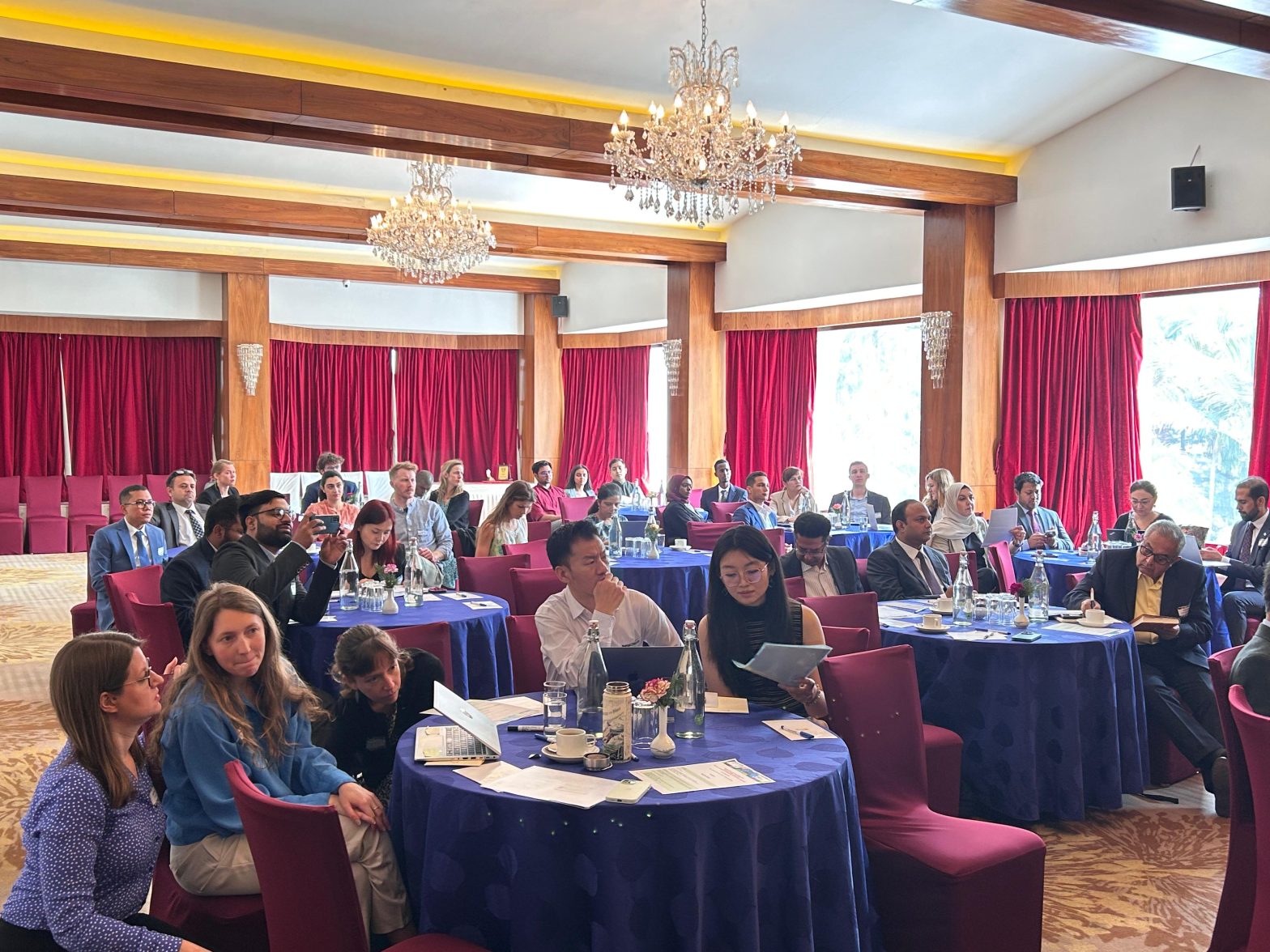Kathmandu: The 7th Annual Water and Peace Seminar 2025, on “Diplomacy, Dialogue, Discourses: Exploring Potentials and Challenges for Inclusive Water Cooperation,” is taking place in Kathmandu from March 26-27 at Hotel Himalaya, Nepal.
It is a part of a week-long event which started on 24 March and concludes on 1 April and it brings together experts, members of civil society, policymakers, and academics from around the world to discuss the future of water diplomacy, with a particular focus on South Asia.
The seminar’s discussions revolve around the importance of transboundary water cooperation, inclusivity, and fostering sustainable and effective cooperation over shared water resources. Prof.
Sanjay Chaturvedi, Vice President (Outreach), South Asian University, in his welcome remarks, said that this event being held in Nepal is very significant as Nepal is home to the Himalayas, which is the largest source of freshwater in the world; hence Nepal can be a bridge for these types of dialogue and discussions.
Medha Bisht, Associate Professor of South Asia University and convener of the seminar,r feels that Water Diplomacy in the Himalayan rivers needs a paradigmatic shift in South Asia. Deliberation on the same would make participants learn about best practices from other regions and understand limitations and challenges on themes around inclusivity and participation.
Susanne Schemeir, Head of Department, Water Governance at IHE Delft, said, “It’s great to have the 7th Water and Peace seminar here in Nepal, a country where a lot of water management and water cooperation is happening. This year we are focusing on inclusivity, a critical topic regarding water sharing and cooperation. Because different actors, such as government actors, civil society representatives, women, youth, and indigenous communities, are involved in the decision-making processes. So we want to bring all of them together and bring out new ideas.”
For Nepal, water diplomacy is of particular importance.
“It allows the country to engage in constructive dialogues, ensuring equitable access to water resources, reducing tensions, and promoting sustainable development across borders. As Nepal continues to address complex transboundary water issues, creating inclusive and cooperative frameworks is crucial to safeguarding its water future and fostering regional harmony.”
Pramod Jaiswal, Research Director of NIICE, shared, “This event is the first of its kind here in Nepal and it has managed to bring together people from around the world. It is an important platform to generate new ideas for fostering sustainable and safe cooperation over water resources as we cover different important issues such as climate change, transboundary water, role of civil societies in water diplomacy, UN Global Water conventions, Water Law and many others”.
Dr. Jaiswal further shared that Water diplomacy is crucial for Himalayan Nepal to address climate-induced glacier melt, transboundary water challenges, and hydropower potential. The UN’s 2025 glacier initiative offers Nepal an opportunity to advocate for climate resilience, strengthen regional cooperation, and secure international support for sustainable water management, disaster mitigation, and equitable resource-sharing.
The week-long program is jointly organized by the IHE Delft Institute for Water Education, Netherland; South Asian University (SAU), New Delhi and Nepal Institute for International Cooperation and Engagement (NIICE), Kathmandu where there are around 70 participants from 30 countries in Kathmandu and more than 100 are participating online.
